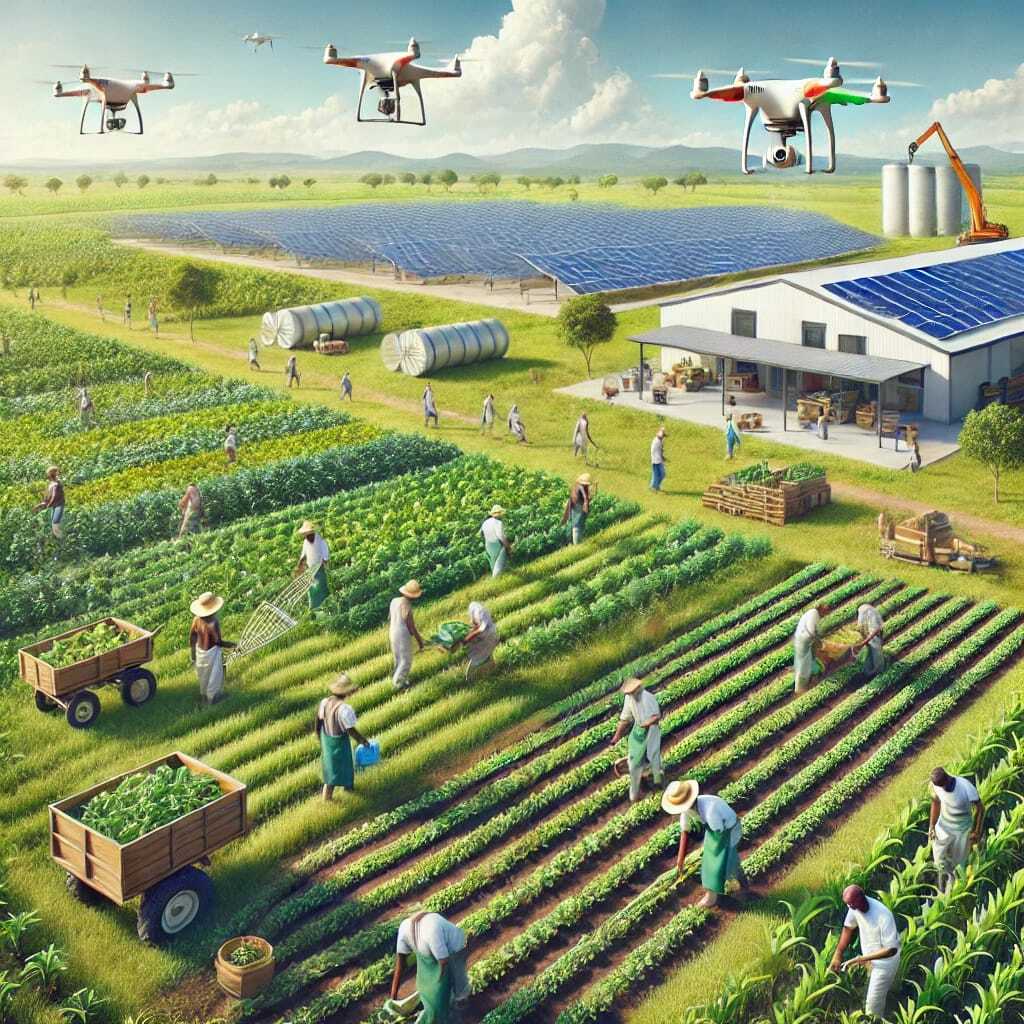"Optimism Grows in African Agriculture as Technology, Trade, and Climate Initiatives Drive Progress Amid Food Security Challenges"
African agriculture is experiencing notable developments characterized by increased optimism, technological advancements, and concerted efforts to tackle food security and climate change challenges.
South Africa's Agricultural Growth and Market Expansion
South Africa's agricultural sector has demonstrated significant growth, with exports reaching a record $13.7 billion in 2024. This success is attributed to collaborative efforts between the government and industry to access diverse export markets, with 44% of products exported to other African countries, 21% to Asia and the Middle East, 19% to the European Union, and 6% to the Americas. The sector also maintained approximately 924,000 jobs by the end of 2024, surpassing the five-year average of 872,000.
The recent establishment of new export markets for grapes in the Philippines and apples in Thailand is expected to further boost South Africa's agricultural trade. These agreements open new avenues for local producers, enhancing production and job creation, and contributing to the economy's resilience.
Technological Advancements in African Agriculture
Technological innovation continues to play a pivotal role in advancing African agriculture. An international project led by the UK's Alan Turing Institute is developing the Aardvark prediction model, aiming to democratize AI-powered weather forecasting. This initiative allows desktop computers worldwide to generate fast and accurate forecasts, which is particularly beneficial for regions with fewer resources, such as Africa. Improved weather predictions can aid agricultural planning and enhance resilience against climate variability.
In Nigeria, agritech company ThriveAgric, led by CEO Uka Eje, is piloting a program to plant fruiting trees like mango and guava alongside traditional crops such as corn, rice, and soybeans. This initiative enables farmers to sequester carbon and earn carbon credits, benefiting both agriculture and climate mitigation efforts. The program aims to start with 30,000 farmers in the upcoming farming season, with plans to expand to 200,000 farmers, reducing Africa's climate impact while supporting food production.
Addressing Food Security and Climate Change
The World Bank has approved an additional $40 million in grants to the Accelerating Impacts of CGIAR Climate Research for Africa (AICCRA) project. This funding aims to advance climate-smart agriculture technologies and address critical gaps in climate resilience and food security in Ethiopia, Ghana, Kenya, Mali, Senegal, and Zambia. The project focuses on equipping farmers with better tools to predict and prepare for climate-related events, enhancing their livelihoods and environmental sustainability.
Despite these advancements, challenges persist. The UN's Food and Agriculture Organization (FAO) and World Food Programme (WFP) have identified nearly two dozen countries, including several in Africa, at high risk of acute hunger due to conflict, climate extremes, and economic instability. The report stresses the urgency of immediate international humanitarian efforts and access to aid to prevent further starvation and loss of life in the most affected regions.
In summary, while African agriculture is making strides through technological innovation and market expansion, ongoing efforts are essential to address food security challenges and mitigate the impacts of climate change across the continent.
